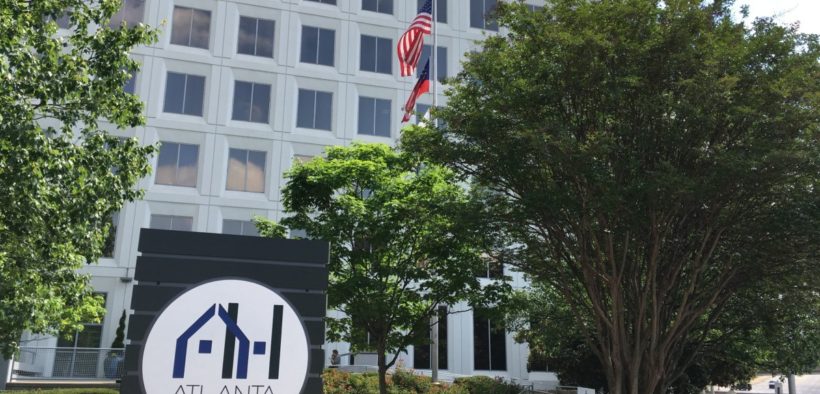Like most companies and public agencies these days, Atlanta’s housing authority has been compelled to restructure its operations in response to the global pandemic.
Atlanta Housing (AH) officials and agency partners alike have told SaportaReport in recent interviews that they’re rolling with the punches to ensure public housing residents stay safe and supported as the novel coronavirus grips society.
Although one AH tenant has passed away due to complications from COVID-19, the disease spread by the virus, a bulk of the agency’s residents are “in high spirits,” said Howard Grant, AH’s senior vice president of community and external affairs and human development.
However, the pandemic has certainly forced AH officials to kick their tenant outreach efforts into high gear, he told SaportaReport this week. “We’ve done a very good job of controlling the angst,” he said.
Many Atlantans who utilize AH services are stacked in apartment high-rises across town. This isn’t ideal for social distancing, but officials have stepped up to keep tenants healthy and optimistic during the turmoil: Community service coordinators have been delivering food to seniors, performing wellness checks on them, offering counseling to people struggling with the crisis and helping tenants apply for unemployment benefits and other crucial services.
They’re also shuttling tenants to and from essential activities, such as grocery shopping and medical appointments, and directing them toward COVID-19 testing sites as needed, Grant said.
Like so many other institutions, AH has had to shift some of its otherwise face-to-face operations to the digital realm, which, at first blush, might seem like a challenge for seniors who aren’t technologically savvy. But, Grant said, it just so happened that AH has for months been offering computer literacy courses for its tenants, which has paid dividends during the public health crisis that’s forced folks to curb contact with others.
Additionally, through a partnership with Comcast, AH has connected more than 200 tenants with laptops to help them navigate these difficult times.
Swapan Kumar, a landlord who manages 16 single-family homes supported by AH services, said he’s been doing the same thing, linking households with computers, printers and other devices that can help bridge “the technological divide.”
Of course, keeping up with people housed in standalone homes comes with its own set of challenges. If, say, a water main bursts or the roof starts leaking, Kumar might ask his tenants to vacate the premises while contractors equipped with masks and gloves address the problems.
Then again, there are silver linings that come with being an AH landlord, too, he told SaportaReport. With rent largely being paid by government funding, Kumar doesn’t have to worry much about receiving checks because tenants have lost income due to the coronavirus.
Plus, he said, he’s financially stable enough to afford some slack to tenants who don’t have their entire rent covered by AH.
Kumar, who also runs some private properties not affiliated with AH, said he’s never been one to charge late fees, especially when he knows a tenant might be down on their luck, as many are these days. “I can do good and do good,” he said, noting that AH support helps offset some of the worry that his private tenants might have trouble turning rent in on time.
“I had a tenant call me concerned that she wouldn’t be able to pay, and I said ‘Don’t worry about it,’” he said.


